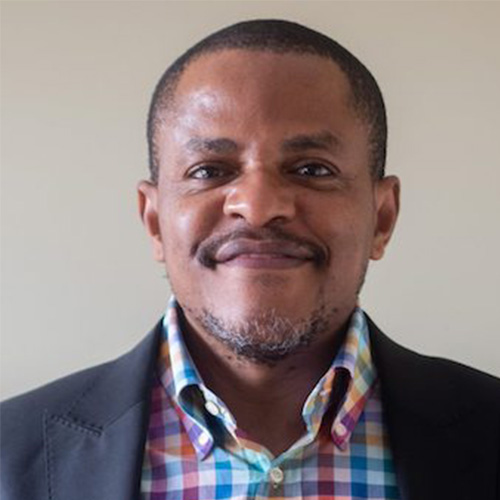
Dieudonne Alemagi
Country (Nationality)
Cameroon
Grantee Title
Project – Advancing REDD+ Implementation in Ghana and Cameroon
Grantee Description
Alemagi graduated from the University of Dschang in Cameroon with a BSc in Biological Science in 1998 and an MSc in Environmental Science from Greenwich University, England, in 2000. His quest for knowledge took him to Germany where he earned another MSc in Environmental and Resource Management from Brandenburg University of Technology, Cottbus, Germany in 2003. He conducted doctoral research on industrial pollution along the Atlantic coast of Cameroon and graduated magna cum laude with a PhD in Environmental and Resource Management in 2006 also from Brandenburg University of Technology. From 2008 to 2011, Dr Alemagi was a Social Sciences and Humanities Research Council (SSHRC) of Canada Postdoctoral Fellow in the Faculty of Forestry at the University of British Columbia. He also worked for close to five years as Climate Change and Policy Associate Scientist with the World Agroforestry Centre at its regional office in Yaoundé, Cameroon.
A large part of Dr Alemagi research is focused on forest policy analysis, reducing emissions from déforestation and forest degradation (REDD+), and other strategies for climate change mitigation and adaptation. During his career, he has published more than 50 publications including peer reviewed journal articles, book chapters, policy briefs, and reports. His papers have appeared in international journals such as Climate Policy, Energy Policy, Forest Policy and Economics, Land Use Policy, Resources Policy, among others. He is currently a principal scientist with Environmental Management and Poverty Alleviation (EMPA) in Fontem, Cameroon.
Project – Advancing REDD+ Implementation in Ghana and Cameroon
While the government of Cameroon and Ghana have introduced a series of initiatives to promote a more sustainable and equitable management of its forests, the rate of deforestation and forest degradation in Cameroon and Ghana remain extremely high. For instance, the rate of deforestation in Cameroon is one of the highest in the Congo Basin while Ghana has one of the highest deforestation rates in Africa and the world. To address this issue, both countries are implementing REDD+ which is a mechanism to support the voluntary efforts of developing countries to mitigate climate change by reducing emissions from deforestation and forest degradation, promoting conservation and the sustainable management of their forests, and enhancing forest carbon stocks. A series of studies relevant for the REDD+ mechanism have been conducted in Cameroon and Ghana. To date, however, studies that examine REDD+ implementation in Ghana and Cameroon and suggest policy recommendations for advancement remains surprisingly slim. Therefore, the overall objective of the project is to identify strategies and approaches for advancing REDD+ implementation in Cameroon and Ghana.
